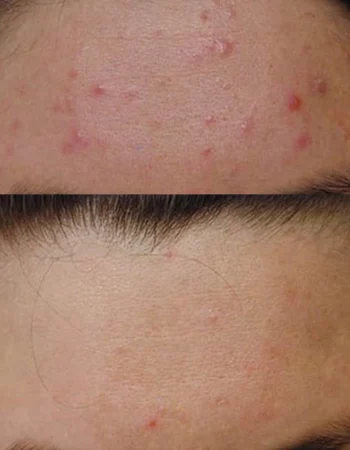Telogen effluvium is a common cause of hair loss. It is self limiting, however other causes of hair loss including chronic telogen effluvium, anagen effluvium & patterned hair loss must be excluded.
Key Points
- Telogen effluvium is a common cause of temporary hair fall
- It frequently occurs after stress, pregnancy & trauma
- Telogen effluvium often occurs with other hair loss conditions including patterned baldness
- Anagen & chronic telogen effluvium can mimic this condition
- A dermatologist can diagnose & treat approximately
Telogen Effluvium at a glance
Our results speak for themselves
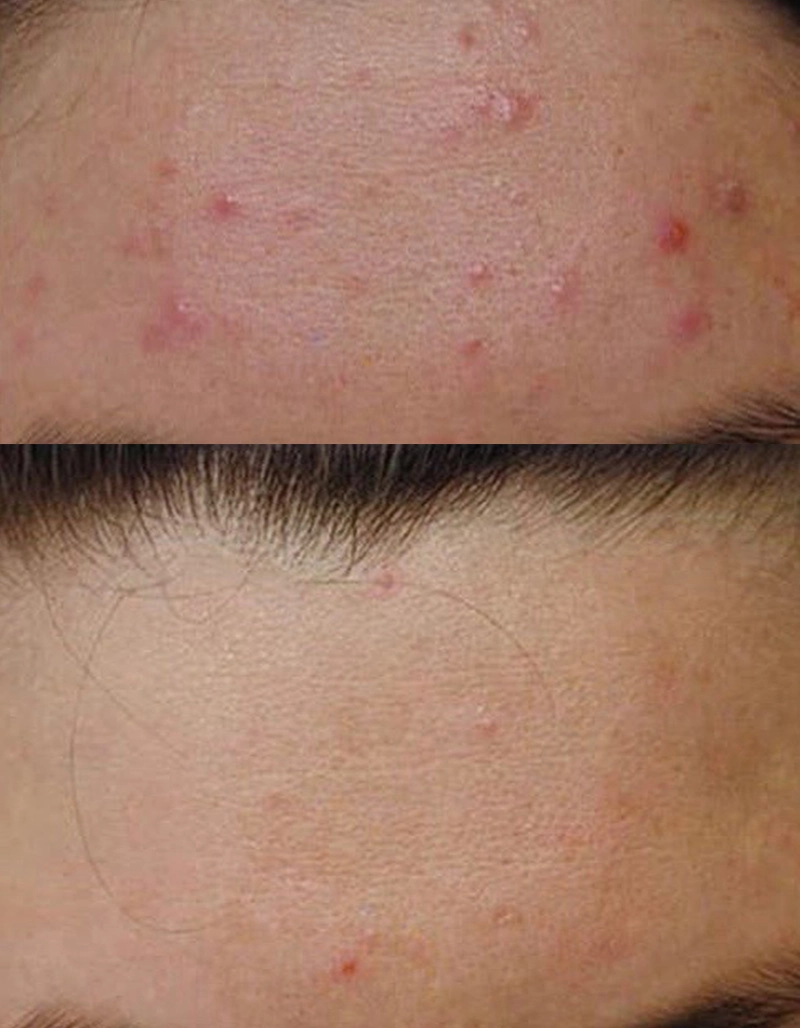
Before
After
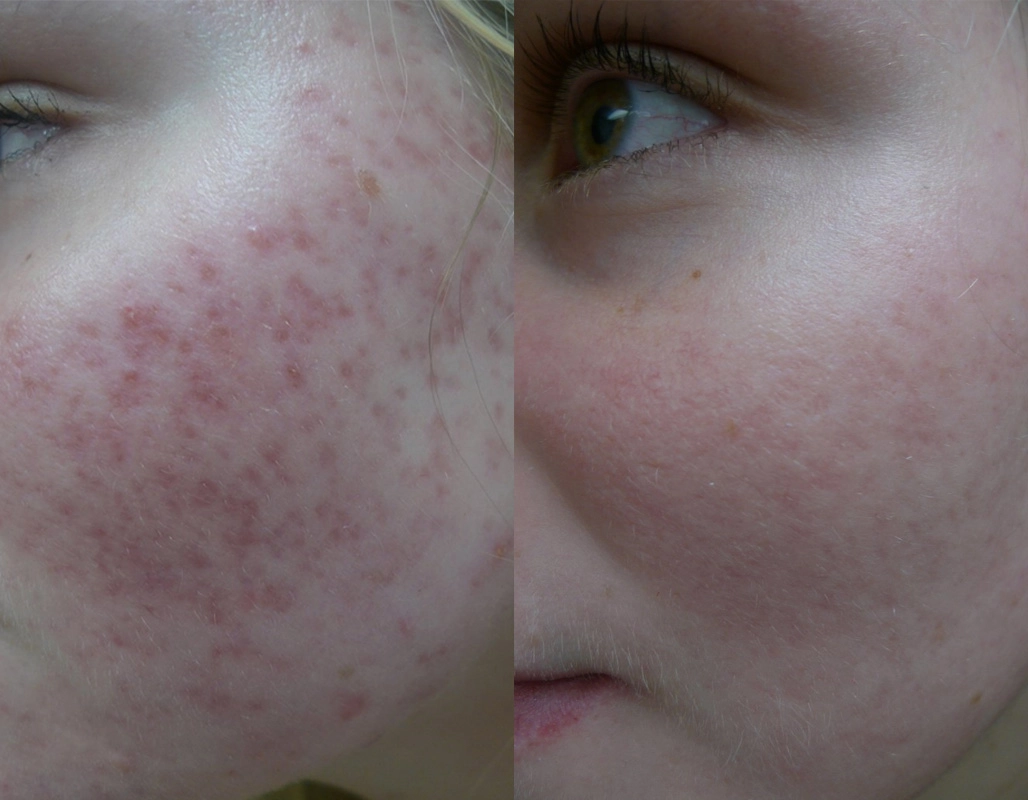
Before
After
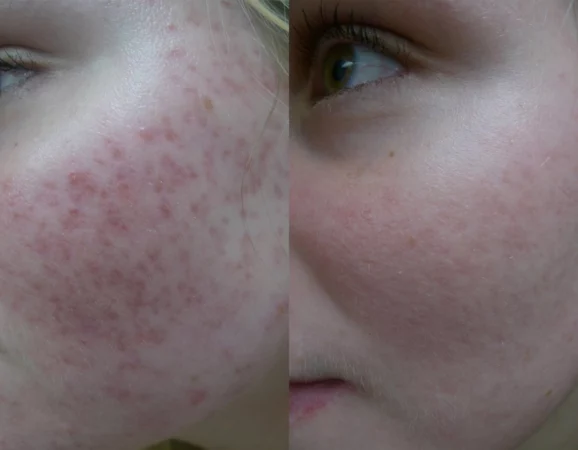
Topicals to treat acne, vascular laser therapy to reduce redness
Ask us more about this treatmant
Preferred Consultation
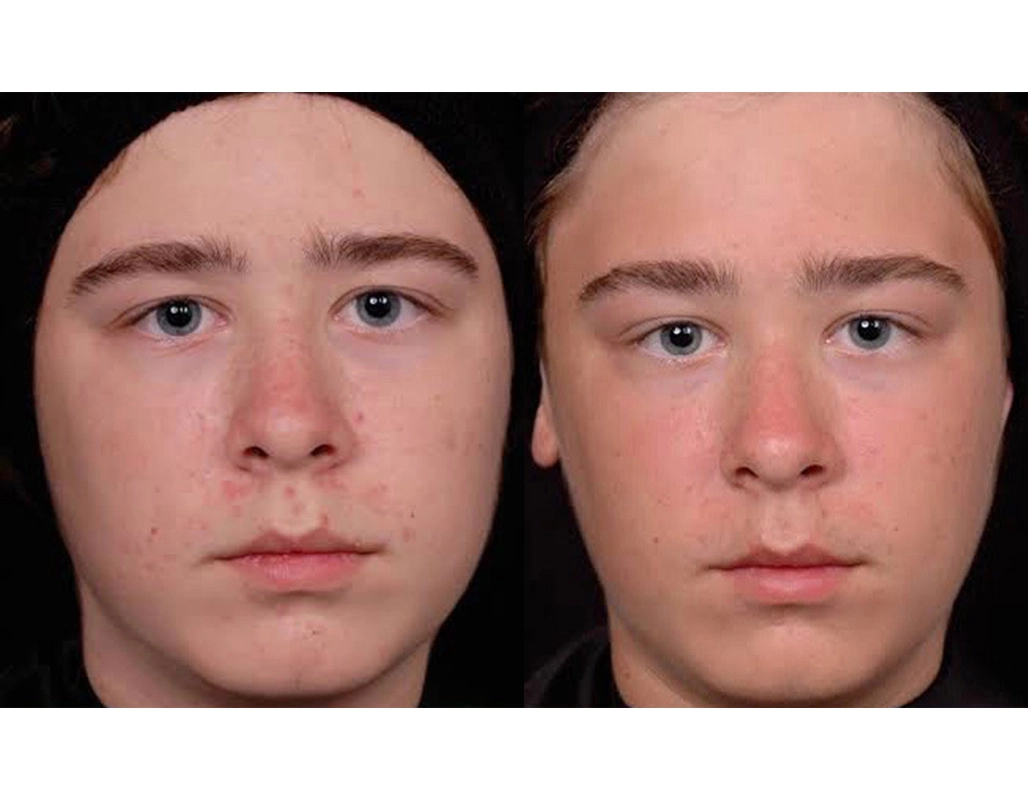
Before
After
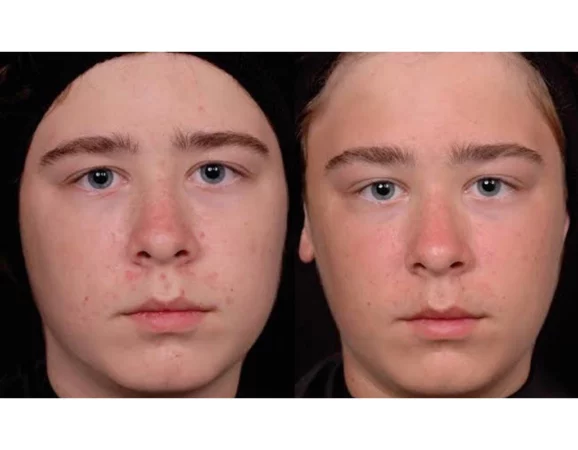
Topicals to treat acne, BHA based chemical peel to reduce blackheads & oil production
Ask us more about this treatmant
Preferred Consultation
FAQs
What is telogen effluvium?
Telogen effluvium is one of the most common causes of temporary hair loss. Although it doesn’t cause complete hair loss, you will notice an increased thinning or shedding of hair, which usually is in the front scalp area. It often happens after stressful or traumatic events.
How can a dermatologist tell the difference between hair loss conditions?
Dermatologists are experts when it comes to hair loss disorders. We can examine the hair bulbs & the scalp to look for clues. With microscopic & dermatoscopic examination we can tell the difference between anagen & telogen hairs as well as differentiate terminal hair from miniaturized follicles.
Coupled with a history, hair part & pull tests we can tell the difference between acute, chronic telogen effluvium & other causes of hair loss.
What is the normal hair cycle & why does telogen effluvium occur?
The hair cycle typically consists of 3 stages, which are:
- Anagen or growth phase.
- Catagen or transitional phase.
- Telogen or resting phase.
5-10% of the hair follicles are normally present in the telogen phase at any one time. In telogen effluvium, up to 70% of the anagen phase hair follicles stay in the telogen resting phase and decrease the hair follicle entrance to the anagen growth phase.
Telogen effluvium could happen to both women and men, but the chronic cases tend to happen more to women especially in the age of 35-40.
What are the symptoms of telogen effluvium?
Telogen effluvium’s main symptom is hair thinning, which can be limited to one area or diffused throughout the scalp. The hair loss can be up to 50%, but it rarely causes a complete hair loss. The hair loss in telogen effluvium is not focal but rather diffused.
The hair loss isn’t permanent, and the hair usually starts growing back in the course of six months.
Beau lines, a groove across the nails, are also often seen as a symptom of telogen effluvium. This is because the nails and hair are under the same influences, so beau lines are considered another sign of growth arrest.
Acute telogen effluvium can happen to both women & men at any age. The acute cases have a sudden increase in hair loss, usually described as the hair coming out in handfuls.
Chronic cases on the other hand have a gradual hair loss and thinning of hair. It happens mostly to women in their thirties and is noticed after a longer period of time
What are the causes of telogen effluvium?
Hair cycle disturbance in telogen effluvium can be triggered by many causes, like:
- Severe stress or physical/emotional trauma: shock and severe stress are the most common triggers to telogen effluvium. The effect of hair loss usually starts from 3-6 months after the incidence.
- Sudden and severe weight loss: weight loss can lead to loss of key nutrients like iron, zinc, vitamin B-6, and other major nutrients like amino acids which are found mainly in protein.
- Pregnancy and childbirth: the hormonal changes and fluctuations in pregnancy or childbirth can disrupt the hair cycles. These conditions are considered transit and when they pass the hair is likely to grow back on its own.
- Acute or chronic illness: high fever, severe infections, autoimmune diseases or any severe illness puts your body in a stress state that can lead to telogen effluvium.
- Surgical operations: this depends on many factors, but the more serious the surgery, the more likely you could get telogen effluvium.
- Certain medications: medications like retinoids, beta-blockers, calcium channel blockers, and antidepressants can contribute to hair loss. Oral contraceptives also are famous for causing telogen effluvium.
- Metal toxicity: contact with toxic chemicals in heavy metals like mercury can lead to hair loss.
- Endocrine disorders: like thyroid disorders, whether it’s a hyperactive or underactive thyroid.
Skin disease affecting the scalp: such as erythroderma or contact dermatitis that could happen from hair dye allergy.
How dermatologists diagnose telogen effluvium?
Dermatologists diagnose telogen effluvium by performing different tests and examining the hairs that have fallen off.
Some of the tests that can be performed to diagnose telogen effluvium:
- Under the microscope: The diameter and length of the fallen hairs may help a doctor to differentiate between this and alopecia. These shed or loose hairs are identified to have club-shaped “roots” typical of the resting telogen phase.
- A hair pull test: the test is done to see the extent of hair being shed.
- A blood test: may be useful to find out the cause of hair loss. These tests can help diagnose iron deficiency or thyroid insufficiency, or even figure out if the cause is related to an autoimmune condition like alopecia areata.
Products

O Cosmedics cleansing range
$63.00-$64.00

O Biotics 3D Hyaluronic Serum
From $97.00
Though telogen effluvium is self limiting, our dermatologists can show you how to speed up the process of hair regrowth.
Is there a difference between telogen and anagen effluvium?
Anagen effluvium is another form of hair loss, but it happens in a quicker and extreme way, resulting in a fall of clumps of hair.
This usually happens to people who are undergoing cancer treatments or take cytostatic drugs, such as alkylating agents or antimetabolites.
The hair loss in this case is also reversible when stopping these medications and can take up to 6 months to grow back.
What are the treatment options of telogen effluvium?
Telogen effluvium treatment options can vary according to the cause. Addressing the problem is very crucial to the treatment. Some options include lifestyle changes, and others need over-the-counter drugs.
Some cases of telogen effluvium are self-limiting and may not need treatment. These cases are usually caused by a transit stress event like postpartum or giving birth.
Treatment options include:
- Treat nutritional deficiencies: your doctor may ask for lab testing of iron, vitamin D, zinc, or vitamin B-complex level. Supplements or certain diets may be recommended by your doctor like a high-protein diet, which increases amino acids intake, especially lysine, an important amino acid in hair growth.
- Gentle hair handling: dealing with telogen effluvium needs special hair care. Any curling, straightening, or even coloring should be avoided to prevent any added damage.
- Reduce stress factors: if your hair loss is related to stress, dealing with it positively will sure help in the treatment of telogen effluvium.
- Hormonal treatments: Hormonal imbalance like thyroid disorders or sex hormone disorders can be a cause of telogen effluvium. The blood is screened for any imbalances and then treated accordingly.
Minoxidil: this Over-the-counter drug can help in hair loss. You can find minoxidil as a spray or lotion. It’s applied once daily and helps to restore hair through elongating the growth phase, anagen, of the hair follicles.
Will the hair regrow?
Telogen effluvium is usually not a permanent case. The hair loss is reversible, and the hair growth takes 3-6 months after stopping the cause. It can take one year until the hair is fully recovered.
As the new hair first comes up through the scalp, it pushes out the dead hair, showing a fine hairline of new hair growth.
What is the outlook for the cases?
Although telogen is a normal hair cycle, where your hair will normally fall out, its abnormal condition intensifies the hair loss to a noticeable effect.
Telogen effluvium is considered a reversible hair loss condition and is mostly triggered by a stressful event. The hair loss usually starts happening several months after the triggering event.
Once we deal with the trigger, the hair loss will slow down, and you’ll notice hair growth, which can take from 6 months to more than a year to fully recover and get your previous appearance.
What happens to chronic cases?
Chronic telogen effluvium is not uncommon. It typically happens in women who previously had very thick hair in their teens and twenties, and they still have an apparently normal amount of hair on their scalp but it’s not as thick as before.
It affects the entire scalp without any clear reason. Furthermore, it often impacts women of 30 to 60 years of age. Chronic telogen effluvium starts suddenly and has a tendency to fluctuate for years.
The degree of hair loss is usually severe in the early stages, and most of the cases notice the decreased thickness of their hair. It does not cause complete baldness and does appear to be self-limiting in the long run.
The cause of chronic hair loss is not known, but it tends to happen when there are repeated episodes of telogen effluvium.


